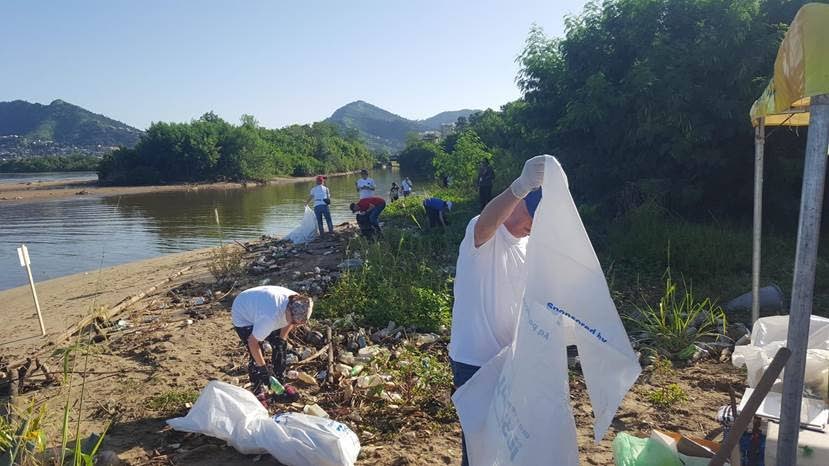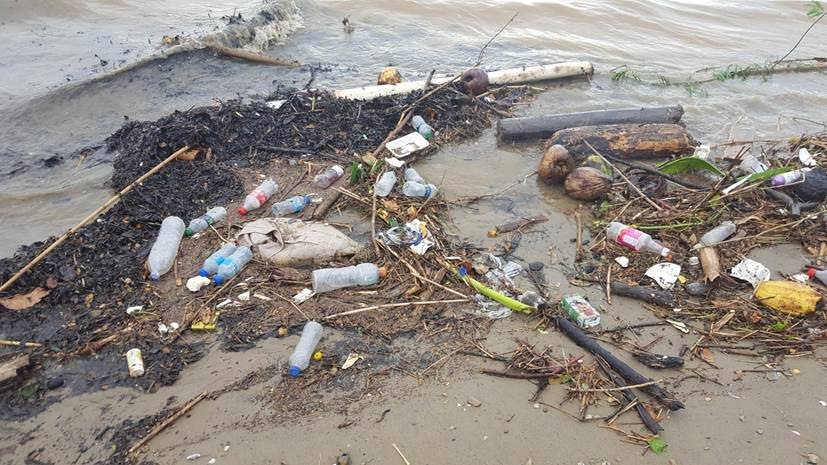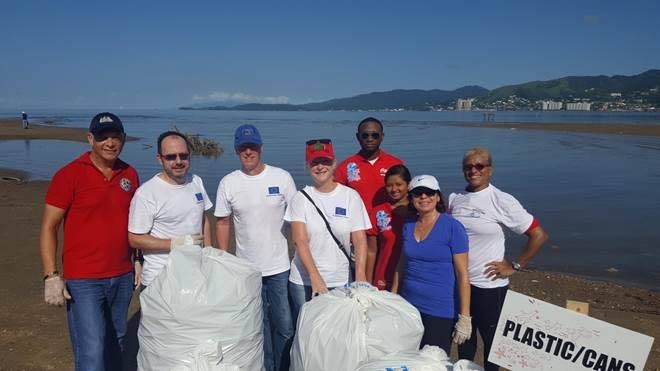EU fights against marine pollution

A styrofoam cup takes more than 19 years to disintegrate, a tin can exists for more than 50 years, and a plastic beverage bottle can last for 450 years in the ocean.
In fact, researchers predict that, pieces of plastic and other non-biodegradable items in the ocean will soon outnumber fish. Plastics have, in the past few years, been recognised as one of the most pressing problems we face. The immediate impact is tremendous –fish eat the plastic debris, mistaking it for food, and choke or starve to death.
Plastic micro particles are now found in drinking water across the world, as well as throughout our oceans. The situation is multiplied 100 fold when we examine the various other types of trash that make their way into our waterways, rivers and oceans.
Over three billion people depend directly on our seas for their livelihoods. But all of us depend on the ocean: for our water, our food, our climate and our air. In the last few decades, science has revealed the widespread deterioration of the marine environment and its resources, something long witnessed by coastal populations. The world must focus on nurturing its collective capacity to tackle these challenges and mitigate their impact and develop immediate and forward-looking actions that protect our marine environment.

Since 2014, world leaders have gathered at the Our Ocean Conference to deliver high-level commitments on marine protected areas, climate change, sustainable fishing, marine pollution, the sustainable blue economy and maritime security. To date, the three Our Ocean Conferences have generated commitments valued at over US$9.2 billion to protect our oceans and to protect over 9.9 million square kilometres (3.8 million square miles) of ocean – an area the size of the United States.
Today and tomorrow the EU will host this high-level conference in Malta. Building on the successful 2014, 2015 and 2016 editions, it will, along with representatives from around the world, aim to inspire and empower a new generation of leaders, entrepreneurs, scientists and civil society to identify solutions and commit to actions for safe, secure, clean and sustainably managed oceans, said a media release.
It was in the spirit of this conference and in an effort to create greater awareness about our local marine environment, that the EU Delegation to TT, joined the International Coastal Clean-up (ICC) 2017, collaborating with the office of the Mayor of Port of Spain and the City Corporation, the British High Commission and Angostura Ltd to clean-up a 300-metre stretch of coastline off the Audrey Jeffers Highway in Port of Spain.
The group of 46 adults and six children collected and disposed of more than 1.5 tonnes (3,439.50 lbs) of trash which included 56 large garbage bags and 45 tyres. The items were sorted and separated before bagging and an analysis of the material indicated a predominance of plastics in the form of bottles, caps, bags and tyres. This shows that we have a long way to go to ensure our oceans become clean. We need to do a better job for the sake of future generations, the release said.

For the past 13 years, the Caribbean Network for Integrated Rural Development (CNIRD) has been co-ordinating this national effort to clean the coastlines and waterways. The ICC, an initiative of the Ocean Conservancy in the USA, sees more than 90 countries engaging in a data collection exercise annually, in an effort to understand the volume and type of debris polluting the world's beaches and waterways. The data collected is used to inspire leaders to act and to find ways to tackle this growing and urgent global problem.
Ambassador Aad Biesebroek, head of the EU Delegation said: “Human action has left our ocean heavily affected by pollution, overexploitation, coastal degradation and global warming. This has severe consequences for all. Before coming to TT, I worked all over the world and I have seen the environmental impact of waste on countries, particularly, small-island economies.
"We can manage waste; we can work to ensure that harmful waste does not get into our water; we can bring a change to how we are dealing with our environment for TT and the rest of the world. This mission requires us to all work together as individuals, as organisations, as countries. At the beach clean-up, we are working on a space-specific task – many beaches, one day. But, through our annual Ocean Conference a macro vision is unfolding, along with strong and action-oriented commitments for world-wide change.”
In the release British High Commissioner Tim Stew stated: “Forty per cent of the ocean is affected by what we do, and unfortunately TT’s coastline has not escaped unscathed any more than Britain’s has. I am though encouraged by the work being done by the government and local civil society groups here to tackle the environmental challenges. The ocean plays a vital role in the health of our planet and we all share the responsibility of looking after it.”
Port of Spain Mayor Joel Martinez, who is himself on a mission to clean up and revitalise the city stated: “I was quite pleased to have been part of the initiative organised by the EU Delegation as we joined the ICC 2017, in creating awareness on the importance of marine pollution and climate change on the whole. As mayor of the City of Port of Spain I am pleased to have collaborated on such an important venture, as I firmly believe that the preservation of our marine life and our environment is of paramount importance and should be everyone's concern.”
Conservation of our environment is part of the whole future of humanity. It is not only to be left to ecologists, environmentalists and world leaders, but also needs each student, business person, civil society activist and change-maker in the public sector. By the day-to-day actions of each individual, it will be possible to reverse the current situation before it is too late, the EU said.
"Taking action to deal with marine pollution is a core commitment of the EU as we aim to realise our vision of clean and well managed oceans in co-operation with our partners around the world," the release stated.
For further info, visit the T&T EU website.


Comments
"EU fights against marine pollution"